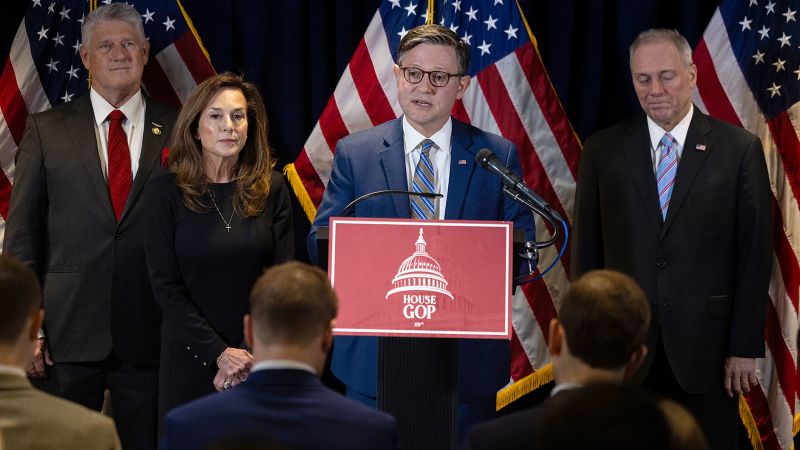In recent political developments, House Republicans have successfully obstructed Democratic efforts aimed at investigating Defense Secretary Pete Hegseth’s controversial use of Signal, a messaging app. This maneuver underscores the ongoing tension between the two parties and highlights the power dynamics at play within the currently divided House of Representatives. Republicans leveraged their majority by implementing a measure that restricts the Democrats’ ability to compel votes on “resolutions of inquiry,” a common tool for the minority party to initiate investigations. The Republicans were particularly motivated to prevent any embarrassment to the Trump administration amid mounting scrutiny surrounding Hegseth’s communication practices.
GOP leaders have taken proactive steps to shield themselves and their allies from potential political repercussions. By incorporating a provision into a recently approved rule, they effectively curbed Democratic efforts that could have led to a vote on inquiries related to Hegseth’s actions. The backdrop to these efforts involves controversy surrounding Hegseth’s communication about military operations against the Houthi movement in Yemen. His use of Signal—both for discussions with military officials and for sharing sensitive information within personal circles—has raised alarms about protocol breaches and the potential for classified information to be compromised.
The action taken by House Speaker Mike Johnson, a key figure in the Republican effort, represents the culmination of ongoing attempts to rewrite House rules in favor of safeguarding the Trump administration from politically damaging outcomes. Prior to this issue, Johnson had previously blocked bipartisan attempts in both the House and the Senate to limit presidential authority over tariffs, showcasing a consistent pattern of prioritizing party interests over legislative accountability.
In defending the GOP’s approach, Johnson characterized the Democratic bid to investigate Hegseth as a “political stunt,” emphasizing his desire to maintain legislative focus on what he views as essential matters. He articulated a philosophy of preventing “political hijinks,” framing the issue as a waste of time that detracts from pressing national concerns. Critics of the Republican leadership, however, argue that this posture reflects an unwillingness to engage in necessary oversight regarding the Pentagon’s actions and broader military operability.
Prominent Democratic figures, such as Rep. Adam Smith, the top Democrat on the House Armed Services Committee, have been vocal in their criticism of the GOP’s obstructionist tactics. Smith had planned to force a vote requiring both President Trump and Hegseth to disclose all communications about military operations conducted via Signal, but the move to restrict inquiry resolutions effectively squashed that initiative. The Democratic narrative spins the GOP’s decision as an attempt to evade accountability and suppress transparency essential for informed governance.
Rep. Smith expressed outrage at the Republicans’ decision, implying that fear of confronting challenging issues drives partisan maneuvers. He pointedly remarked on the implications of silence surrounding such critical topics and the potential for continued lapses in accountability from Hegseth. This perspective illustrates a deep-seated frustration among Democrats who see the GOP’s tactics as a means of stifling oversight.
Interestingly, the GOP’s leadership faced internal backlash regarding this obstruction. Some Republicans, including Rep. Don Bacon, have expressed dissatisfaction with how GOP leadership managed the situation, advocating for increased transparency in legislative processes. Bacon’s comments reflect a broader concern within certain factions of the Republican Party, who are wary of perceived overreach and the implications of shielding leaders from scrutiny, especially in scenarios involving ethical dilemmas.
In summary, the recent political maneuvers surrounding Defense Secretary Pete Hegseth and the use of Signal underscore a significant rift between Democrats and Republicans in the House. With accusations of political stunts and allegations of lack of transparency dominating discourse, the ongoing battle illustrates the complexities of governance in a hyper-partisan era. As public scrutiny intensifies, both parties must navigate their strategies carefully amidst an ever-watchful electorate and a deeply divided Congress.



